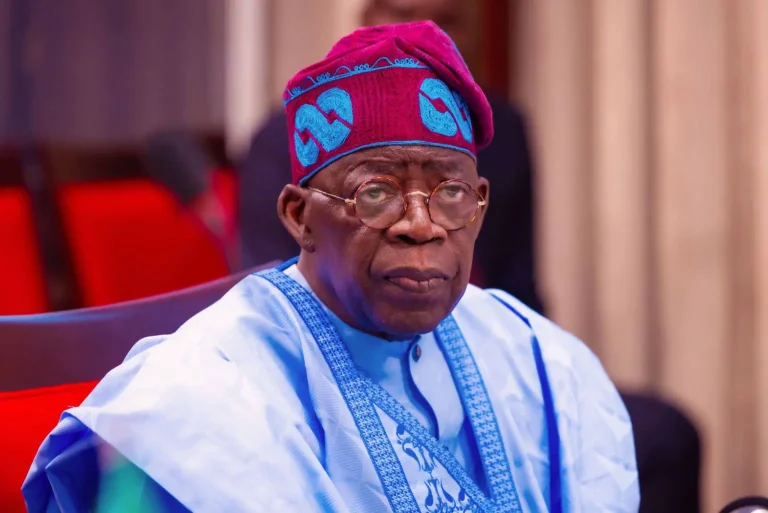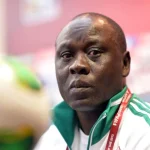On behalf of President Bola Tinubu, Vice President Kashim Shettima gave Nigeria’s national statement on Wednesday at the 80th session of the UN General Assembly.
Tinubu called on the UN to admit Nigeria as a permanent member during the speech.
The president of Nigeria also urged nations that possess strategic minerals to equitably profit from them by generating jobs, local processing, and investment.
The complete address is:
KASHIM SHETTIMA, GCON, VICE-PRESIDENT, FEDERAL REPUBLIC OF NIGERIA, GAVEN BY HIS EXCELLENCE, PRESIDENT BOLA AHMED TINUBU GCFR, IN THE GENERAL DEBATE OF THE 80TH SESSION OF THE UNITED NATIONS GENERAL ASSEMBLY IN NEW YORK.
The theme for September 24, 2025, is “Better Together: 80 Years and More for Peace, Development, and Human Rights.”
President, Madam
Mr. Secretary-General,
Excellencies, heads of government and state,
Honorable Delegates,
Our world’s chaos serves as a reminder that we cannot afford to do nothing. Without a community like this to remind us that we are all members of the same human family, we would have been consumed by our differences. We have resisted being broken, even during our darkest moments.
From the ashes of despair, this community was created as a means of establishing order and a common belief that we could not afford to make the same mistakes twice. We believe in this community because we firmly believe that humanity will be saved, not because we are morally superior.
President, Madam
1. Nigeria joins the international community in congratulating you on your election to the 80th session of the General Assembly as President and pledges our unwavering support throughout your term.
I congratulate the Secretary-General, His Excellency António Guterres, and your predecessor, my brother, His Excellency Philémon Yang, for their exceptional leadership and unified leadership during these unprecedented times.
2. This anniversary shouldn’t turn into a nostalgic retreat. It needs to be an honest moment, a time to reflect on our mistakes and how we could have done a better job of transforming our ideals into action that satisfies modern demands.
3. The rate of cross-border change is unstoppable. Technology tools, information and financial flows, divisive ideologies that advocate violence and division, the looming storm of the climate emergency, and the wave of irregular migration are all examples of how it shows up. This process of change needs to be ours. We must acknowledge the reality when we discuss issues like nuclear disarmament, the spread of small arms, reforming the Security Council, equitable access to trade and finance, and the conflicts and suffering of people worldwide. Our shared humanity is tarnished by these.
4. Despite our cautious diplomatic language, some have turned their backs on the multilateral model due to the slow progress on these tenacious topics of discussion in the UN General Assembly. I observed a change at this gathering a few years ago: important events were starting to happen outside this hall, and the most sought-after speakers were no longer heads of state. These are alarming indicators. Nigeria is still adamant about the benefits of multilateralism, but in order to maintain this belief, we need to demonstrate that the current systems are flexible. Change must be genuine, effective, and perceived to be effective. The course of events is already known if we fail.
5. Our goal is to improve the chances for human rights, development, and peace. To illustrate how we can accomplish this, Madam President, I would like to make four points today:
First and foremost, Nigeria needs a permanent seat on the UN Security Council. This ought to happen as a component of a larger institutional reform process.
Two: We must act immediately to support trade, financing, and sovereign debt relief.
Three: Minerals must be advantageous to the nations that host them.
Four: We need to bridge the digital divide. “A.I.” must Full text of President Tinubu’s speech at UN Assembly stand for “Africa Included,” as our friend the Secretary General has stated.
6. My first point: the United Nations can only regain its full relevance when it reflects today’s world, not the past. Nigeria’s story proves this clearly. At the UN’s founding, we were a 20-million-strong colony, excluded from decisions about our future. Today, with over 236 million citizens and projected to be the third most populous nation globally, we are a young, dynamic, and stabilizing force in Africa, with a strong record in peacekeeping. Our call for a permanent seat on the UN Security Council is a matter of fairness, proper representation, and the reforms needed to restore the UN’s credibility as the foundation of multilateralism.
7. For this reason, Nigeria fully supports the Secretary-General’s UN80 Initiative and the resolution adopted by this Assembly on 18 July 2025. These steps are vital to reform the UN system to remain effective, efficient, and relevant despite financial challenges. We endorse efforts to streamline structures, eliminate duplication, and strengthen coherence so the UN can act and speak with one voice.
Madam President,
8\. No country can achieve peace in isolation. Sovereignty comes with shared responsibility. Our survival is linked to that of others, and so we must cooperate with neighbors and partners, addressing the flows of weapons, money, and people that often fuel conflict—usually driven by faceless non-state actors across our region.
9. Nigeria has a proud peacekeeping history. Since 1960, our soldiers and civilians have taken part in 51 of 60 UN operations. We continue to work with African partners, including through the Multinational Joint Task Force, and we face insurgency at home with determination. Yet, one lesson stands out: while military tactics can win battles, it is values and ideas that win wars that last across generations.
10. Terrorists despise us because we choose tolerance over tyranny. They seek to divide us, but we choose unity, compassion, and order. Beyond fighting wars, we also feed and shelter victims of conflict. This empathy guides our concern for crises beyond our borders—whether in Gaza, Qatar, or other troubled regions. Our own experience shows that violence never ends where it begins, and unchecked impunity cannot be tolerated.
11. Human life must not be trapped in endless debate. We firmly believe that a two-state solution is the only dignified path to peace for Palestine. For too long, innocent people have paid the price of global indecision. Nigeria speaks not as a partisan, but as a peacemaker, insisting that Palestinians deserve the same dignity and freedoms as all others.
12. Our choice is clear: civilized values over fear, vengeance, or bloodshed. Peace brings opportunities that extremists try to destroy. Through multilateralism and the rule of law, we can deny them the space to sow division. Nigeria’s own diversity proves that democracy takes different forms and paces, which is why we are working with the UN through the Regional Partnership for Democracy to strengthen democratic institutions across our region.
Madam President,
13\. My second point: peace demands constant vigilance. Rising insecurity has forced many states to weigh tough choices—between investing in infrastructure or defense, schools or weapons. Nigeria believes sustainable peace lies in growth and prosperity. We have made difficult economic reforms, including removing subsidies and currency controls that served the few while harming the many.
14. I believe in the transformative power of markets. Our role as government is to create an enabling environment and trust in our people’s creativity. Transition is not easy—it comes with hardship—but it unlocks opportunity. The inaugural West Africa Economic Summit in Abuja this year exceeded expectations, showing the impact of innovation.
15. With the same spirit of review, I urge the UN to rethink resource allocation. Climate change is not a distant or purely environmental issue—it is a national, regional, and global security issue, tied to migration and instability. It is an issue for all of us.
16. Nigeria has directed relevant ministers to work with the UN to maximize climate funds, prioritizing education, resilient housing, technology, and financing for vulnerable communities. Empowered communities can become part of solutions rather than problems.
17. Africa has made progress in recent years and can go further if international financial systems are reformed. Debt relief is urgently needed—not as charity but as a path to shared peace and prosperity.
18. I propose a binding mechanism for managing sovereign debt, similar to an International Court of Justice for finance, to help emerging economies escape dependency on raw exports.
19. Decades ago, the Lagos Action Plan outlined this vision—adding value through local processing and manufacturing. This remains true today, from agriculture to solid minerals. With the African Continental Free Trade Area, we can achieve more. Growth and prosperity remain our path to meeting the SDGs.
Madam President,
20. My third point: we welcome progress toward peace in the Democratic Republic of Congo. Africa’s resources, including strategic minerals, should be a source of prosperity, not conflict. Proper investment in exploration and processing can diversify global supply, reduce tensions among major powers, and secure peace for Africa, which has long suffered from geopolitical rivalries.
21. Nigeria’s experience in the Niger Delta shows that resource stability comes when communities benefit directly. Likewise, global stability improves when producing countries fairly share in the value of their resources through investment, local processing, and jobs. Exporting raw materials alone only fuels inequality and unrest.
Madam President,
22. My fourth point: bridging the digital divide. As new technologies reshape the world, we must act to ensure inclusivity. Technology offers immense benefits but also risks, from fake news to growing cynicism among youth. I call for a global dialogue that maximizes technology’s benefits, safeguards against its dangers, and accelerates access for developing countries to close wealth and knowledge gaps.
23. Nigeria reaffirms its unwavering commitment to peace, development, unity, multilateralism, and human rights. None of us is safe until all of us are safe. Though challenges are many, history shows the UN has always risen to the moment with bold action. The balance between sovereignty and shared responsibility is once again at stake. Renewed commitment to multilateralism—beyond slogans, as an article of faith—is our surest way forward. Nigeria pledges itself fully to this noble cause.
24. Thank you.





